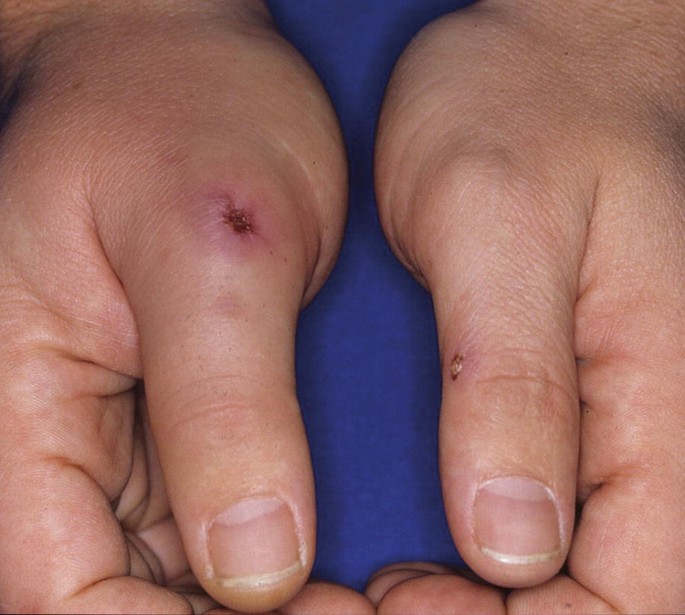Disseminated gonococcal infection (DGI) is a severe form of gonorrhea that occurs when Neisseria gonorrhoeae, the bacterium responsible for gonorrhea, spreads beyond the genital area to other parts of the body. DGI can affect various organs, including the joints, skin, and cardiovascular system, leading to serious health complications if left untreated. Early recognition and prompt treatment are critical in managing this condition effectively.

What Is Disseminated Gonococcal Infection?
DGI represents a systemic infection caused by Neisseria gonorrhoeae. This bacterium typically affects mucosal membranes, causing localized infections in the urethra, cervix, rectum, or throat. However, in certain cases, the bacteria can disseminate through the bloodstream to distant parts of the body, leading to more complex and potentially life-threatening conditions.
Unlike uncomplicated gonorrhea, which is confined to the genital or urethral regions, DGI involves systemic complications such as skin lesions, joint infections, and septic arthritis. The condition can progress rapidly and requires immediate medical intervention to prevent long-term damage.
Causes of Disseminated Gonococcal Infection
The primary cause of DGI is the spread of Neisseria gonorrhoeae from its initial site of infection to other areas of the body through the bloodstream. The bacterium can enter the bloodstream in individuals with untreated or inadequately treated gonorrhea. Risk factors that increase the likelihood of DGI include:
- Untreated or inadequately treated gonorrhea: Without appropriate antibiotic therapy, gonorrhea can lead to complications like DGI.
- Sexual transmission: DGI primarily affects individuals with a history of unprotected sexual contact with an infected person, especially through vaginal, oral, or anal sex.
- Immune system factors: People with compromised immune systems, such as those with HIV or other immune deficiencies, may be at higher risk of developing DGI.
Symptoms of Disseminated Gonococcal Infection
The symptoms of DGI can vary depending on the areas of the body that are affected. Common symptoms include:
1. Joint Inflammation (Gonococcal Arthritis)
One of the hallmark features of DGI is the development of gonococcal arthritis, which can lead to painful, swollen joints. The knees, wrists, and ankles are typically the most affected, causing difficulty with movement and mobility.
2. Skin Lesions
Individuals with DGI often develop skin lesions, which may appear as pustules or maculopapular rashes. These lesions are typically seen on the extremities, including the hands and feet.
3. Fever and Malaise
Fever, chills, and a general feeling of unwellness often accompany the infection as the body fights the spread of the bacteria.
4. Bacteremia
In some cases, the bacteria enter the bloodstream, leading to bacteremia. This can cause severe complications, including sepsis, and requires immediate medical attention.
5. Pelvic or Abdominal Pain
Though less common, DGI can sometimes cause pelvic or abdominal discomfort, especially if the infection spreads to the reproductive organs.
How Is Disseminated Gonococcal Infection Diagnosed?
Diagnosing DGI requires a combination of clinical examination and laboratory tests. Healthcare providers typically perform the following:
- Medical history and physical exam: A detailed medical history, including recent sexual activity, and a physical examination to identify symptoms such as skin lesions and joint swelling.
- Blood cultures: Culturing blood samples is essential to confirm the presence of Neisseria gonorrhoeae in the bloodstream.
- Joint fluid analysis: If arthritis is present, synovial fluid (from the joint) may be extracted and tested to check for bacterial infection.
- Nucleic acid amplification tests (NAATs): These molecular tests can identify Neisseria gonorrhoeae from various clinical specimens, including urine, throat swabs, or genital swabs.
Treatment of Disseminated Gonococcal Infection
Treatment of DGI typically involves antibiotic therapy to eradicate the infection. The choice of antibiotics depends on the severity of the infection, the patient’s medical history, and local antibiotic resistance patterns. Common treatment regimens include:
- Intravenous (IV) antibiotics: In severe cases, intravenous antibiotics such as ceftriaxone are administered to treat systemic gonococcal infections.
- Oral antibiotics: Once the infection starts to resolve, oral antibiotics may be prescribed to continue the treatment course.
- Joint drainage: If septic arthritis is present, joint drainage may be necessary to remove infected fluid and reduce inflammation.
Timely treatment with antibiotics is crucial to prevent complications such as permanent joint damage, chronic pain, or systemic infections like sepsis.
Preventing Disseminated Gonococcal Infection
Preventing DGI primarily involves reducing the risk of contracting gonorrhea in the first place. Key prevention strategies include:
- Safe sexual practices: Using condoms or dental dams during sexual activity can reduce the risk of gonorrhea transmission.
- Regular STI testing: Individuals who are sexually active should get regular STI screenings, especially if they have multiple partners or engage in unprotected sex.
- Prompt treatment of gonorrhea: Seeking early medical care and completing the full course of antibiotics for gonorrhea can prevent the development of DGI.
- Vaccination and public health education: Although there is currently no vaccine for gonorrhea, public health campaigns and education about safe sexual practices can help reduce the spread of infection.
Complications of Disseminated Gonococcal Infection
If DGI is not treated promptly, it can lead to severe complications, including:
- Chronic arthritis: The infection can cause long-term joint damage, leading to chronic arthritis and mobility issues.
- Sepsis: In rare cases, if the bacteria spread extensively through the bloodstream, it can lead to sepsis, a life-threatening condition requiring immediate intervention.
- Endocarditis: Rarely, DGI can spread to the heart, causing an infection of the heart valves (endocarditis), which can be fatal if left untreated.

